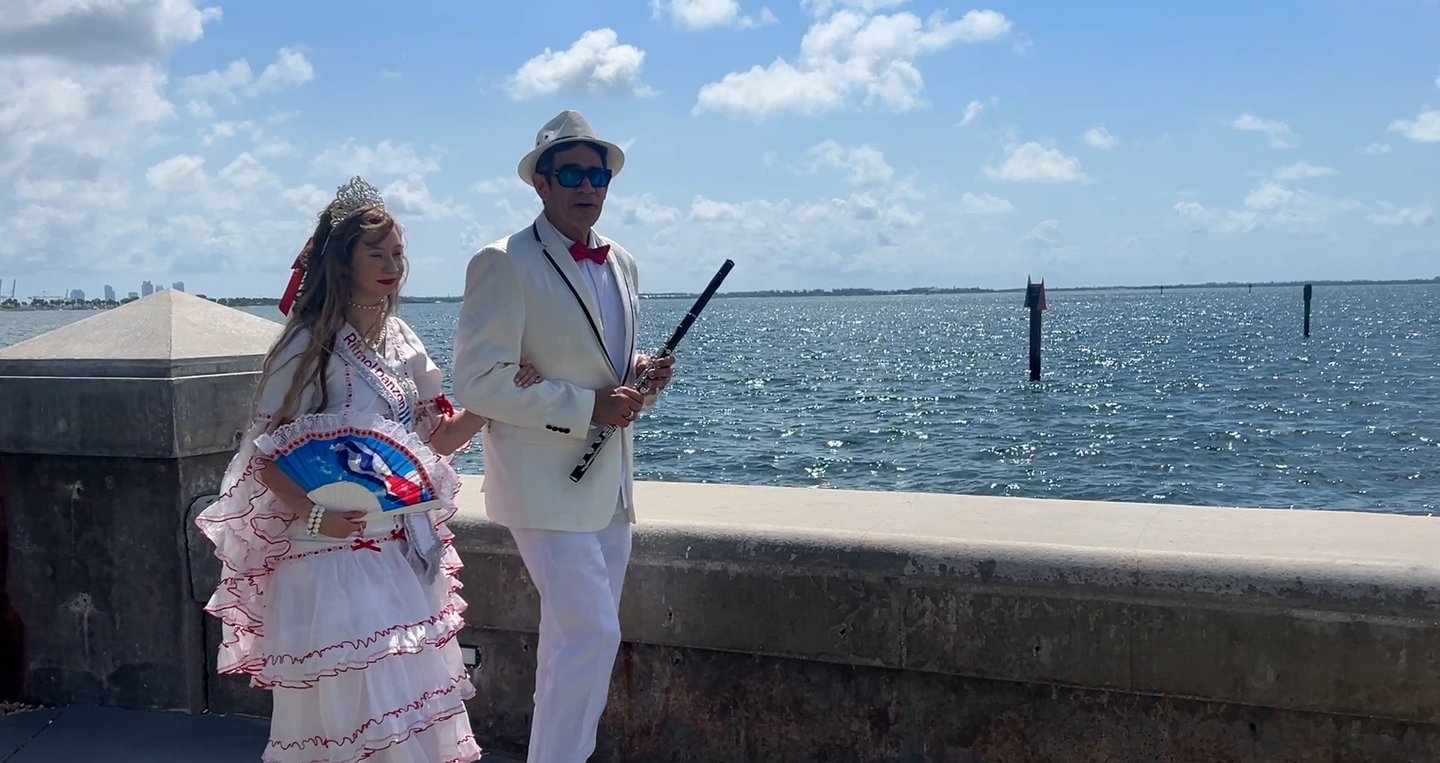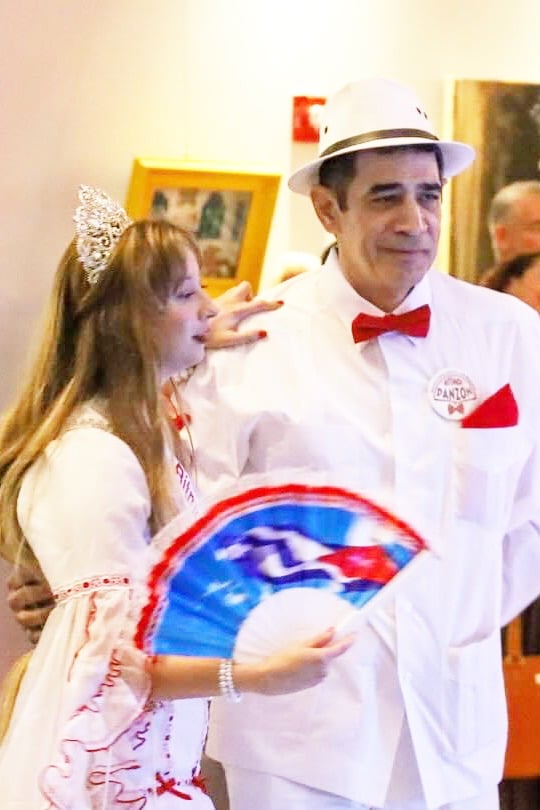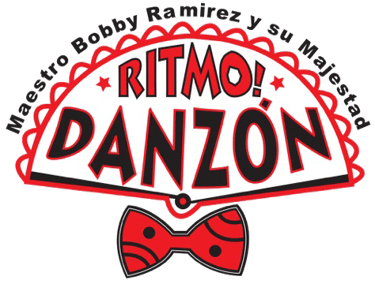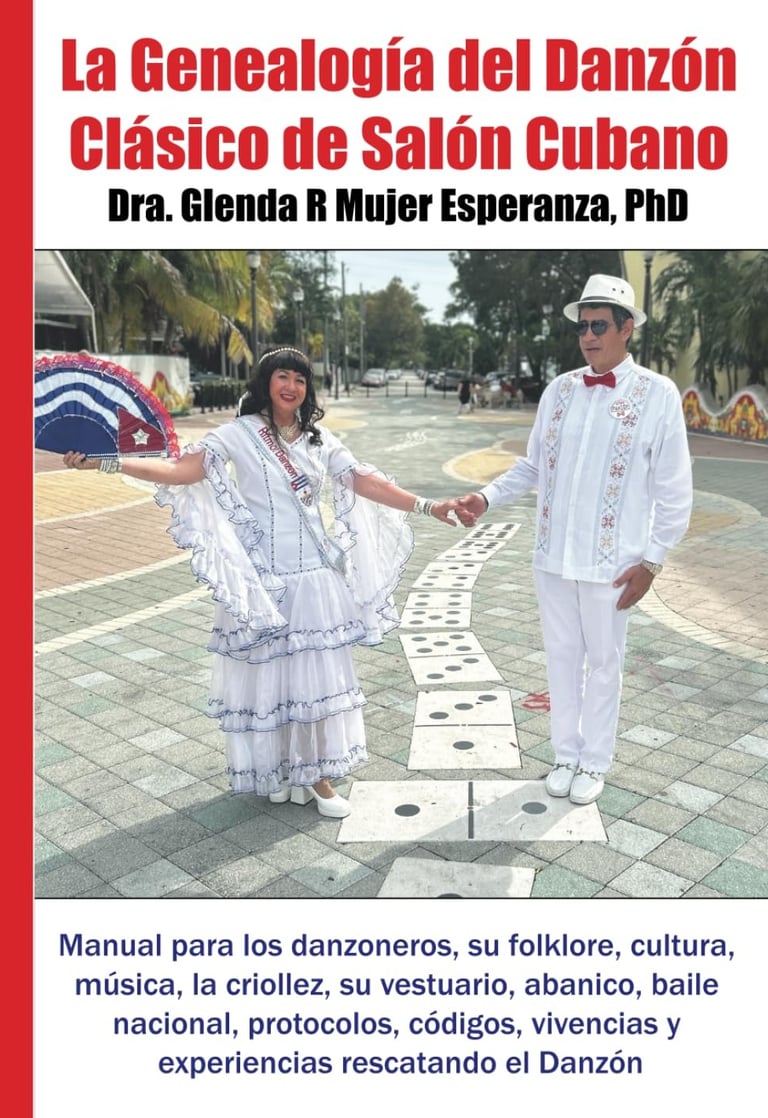La Reinita de Ritmo! Danzón: A Little Queen for a New Era of Cuban Danzón
For lovers of danzón—the “pearl of the Americas” and one of the most elegant social dances in the world—La Reinita de Ritmo! Danzón stands out as both a tribute and a bold step forward.
BLOG POSTS
Ritmo! Danzon
11/15/20255 min read


La Reinita de Ritmo! Danzón: A Little Queen for a New Era of Cuban Danzón
Composed, arranged, and performed by Maestro Bobby Ramirez
First released as a single in 2021
A New Jewel in the Crown of Danzón
For lovers of danzón—the “pearl of the Americas” and one of the most elegant social dances in the world—La Reinita de Ritmo! Danzón stands out as both a tribute and a bold step forward. This contemporary danzón, composed, arranged, and performed by Cuban-American virtuoso flautist Maestro Bobby Ramirez, brings together deep respect for tradition and a spirit of musical innovation.
The title, La Reinita de Ritmo! Danzón (“The Little Queen of Danzón Rhythm”), honors not just one individual, but the grace and dignity of every woman who dances danzón. In this tradition, the ladies on the dance floor are truly queens—elegant, poised, and central to the visual poetry of the genre.
The Inspiration: A Girl Who Became a Teacher
This piece is lovingly dedicated to Gabby Aenlle. From a very young age, Gabby developed a strong passion for dancing danzón, eventually becoming a teacher of the style.
In naming the piece La Reinita (“the little queen”), Ramirez acknowledges both Gabby’s personal journey and the broader symbolism of women as the elegant heart of danzón culture.
A Historic Innovation: The Danzón Cadenza
What truly sets La Reinita de Ritmo! Danzón apart is its structural innovation. In this work, Maestro Ramirez introduces a new musical development in the evolution of danzón: the cadenza.
In classical music, a cadenza is a free, often virtuosic passage where the soloist performs without the full support of the ensemble. Ramirez brings this idea directly into the world of danzón by creating two cadenzas:
One at the beginning of the piece
Another in the middle
During these passages, there is no fixed rhythm or accompanying pattern. Only a single instrument—the flute—emerges, improvising in a completely free, expressive style. According to the composer, this may be the first danzón in the history of the genre to incorporate such cadenzas in this way, and also one of the first to include a refrain after the montuno section, further expanding the form.
This blending of classical concept (cadenza), jazz improvisation, and traditional danzón structure could represent a turning point in how future composers approach the genre.
Roots in the French Charanga Tradition
Despite its innovations, La Reinita de Ritmo! Danzón is firmly rooted in the classic Charanga Francesa style—elegant Cuban salon music that emerged in the early 20th century. The recording features the traditional charanga instrumentation:
Flute
Two violins
Piano
Double bass
Güiro
Timbales
Conga (introduced specifically in the montuno section)
This orchestral format owes much to the pioneering work of Antonio María Romeu, whose ensembles helped define the essential sound of Cuban danzón and son montuno in the early 1900s. Before this, from the mid-19th century, similar groups were known as Orquestas Típicas, made up mostly of wind instruments and usually lacking a piano. The shift toward the charanga format marked an important step in the evolution of Cuban popular music, and La Reinita proudly continues in that sonic lineage.
The Recording: Cuban Talent in Action
The recording of La Reinita de Ritmo! Danzón brings together a select group of Cuban musicians under the direction of Maestro Ramirez:
Bobby Ramirez – flute, composer, arranger, orchestra leader
Livan Mesa – piano
Yorgis Goiricelaya – bass
Antonio “Pacha” Portuono – timbales
Otto Santana – güiro and congas
Luis Aguilar – violins
Ramirez’s virtuosic flute playing, backed by this ensemble, creates a sound that is at once traditional and refreshingly modern—tying together centuries of Cuban musical heritage with a contemporary artistic voice.
About Maestro Bobby Ramirez
Bobby Ramirez was born in Camajuaní, Santa Clara, Cuba. His father, Roberto Ramírez, was of African descent from Victoria de Las Tunas in eastern Cuba, and his mother, Lilia Ubert, of Spanish-European descent, was born in Contramaestre, Santiago de Cuba. Today, he resides in Miami, Florida, where he continues his work as a performer, educator, and cultural advocate.
He is the founder and president of two non-profit organizations:
Instituto Folklórico Cubano Americano (Cuban American Folkloric Institute)
Florida Jazz Museum (Jazzonian)
Both entities are dedicated to preserving and promoting Cuban culture and jazz heritage through education, performance, and community engagement.
Over the course of more than four decades on stage, Ramirez has shared the spotlight with many giants of Latin music, including Tito Puente, Arturo Sandoval, Israel “Cachao” López, and Mario Bauzá, among others. His discography includes more than 40 albums that span Cuban music, jazz, and classical repertoire, available on platforms such as Spotify, Apple Music, iTunes, and Amazon.
One Miami-based theater artist and producer, Alejandro Galindo, praised the maestro’s work by stating that what Bobby and his partner do with danzón is “truly spectacular” and a source of pride for Cubans—an endorsement that underscores the cultural importance of projects like La Reinita de Ritmo! Danzón.
Preserving Tradition While Innovating the Form
La Reinita de Ritmo! Danzón is more than a single recording; it represents another major contribution to the preservation and evolution of a genre deeply rooted in Cuban identity. By integrating the cadenza concept and adding a refrain after the montuno, Maestro Ramirez expands what is possible within the danzón form without losing the elegance, romanticism, and danceability that define it.
This delicate balance—reverence for tradition coupled with fearless innovation—suggests that the piece could be remembered as a landmark in the ongoing history of danzón.
Sheet Music Editions and Educational Value
Recognizing the importance of sharing this music with performers, educators, and students, La Reinita de Ritmo! Danzón is available in a variety of printed sheet-music formats, each designed for different types of ensembles:
Charanga Francesa + String Chamber Orchestra Arrangement
Full score
Lead flute
2 violins
Viola
Violoncello
Contrabass
Piano
Bass guitar
Drum/timbales guide
Includes: a synopsis on the genealogy of danzón, glossary of Cuban music terms, list of common Cuban instruments, and a list of significant Cuban musicians.
Jazz Big Band / Mexican Danzonera Arrangement
Full score
Flute
2 clarinets
5 saxophones
4 trumpets
4 trombones
Piano
Bass guitar
Drum/timbales guide
Also includes educational material similar to the charanga edition, with historical notes and glossaries.
Marching Band Arrangement
Full score
Piccolo, flute
3 clarinets, bass clarinet
2 alto saxophones, 1 tenor sax, baritone sax
2 mellophones in F
3 trumpets, 4 trombones, baritone, tuba
Glockenspiel
Drum guide, snare drum, tenor drum, bass drum, cymbals
Each edition does more than present notation: it serves as a mini–study guide on Cuban music, making La Reinita a valuable resource for band directors, music students, and university programs looking to explore authentic danzón within different ensemble traditions—Cuban, jazz, and marching band alike.
The Roots of Danzón: A Brief Context
Within the supporting materials, Ramirez traces the historical roots of danzón. The genre emerges from a long process of fusion and creolization:
European ballroom dances and contradanza traditions
African rhythms and cultural practices brought to the Caribbean
The development of the Cuban habanera and danza criolla (Creole dance)
The eventual crystallization of these elements into the danzón, a uniquely Cuban form of social dance and music
In this sense, danzón is the musical and cultural “child” of many rhythms, races, and histories—an art form that tells the story of Cuba’s diverse heritage through sound and movement.
Where to Listen and Watch
Listeners can experience La Reinita de Ritmo! Danzón through its official videos on YouTube, as well as on major streaming platforms where Maestro Ramirez’s extensive catalog is available. Official video links include:
From these recordings to the printed scores and educational materials, La Reinita de Ritmo! Danzón stands as a vibrant example of how one composer-performer can help preserve, renew, and re-imagine a national treasure—ensuring that danzón continues to inspire dancers, musicians, and audiences for generations to come.
Danzón Classes
We will teach you to dance danzón and contradanza at your own pace. No previous dance experience required. Learn more!










Classic Cuban Danzón
Ballroom Dancing
info@ritmodanzon.com
Contact us




